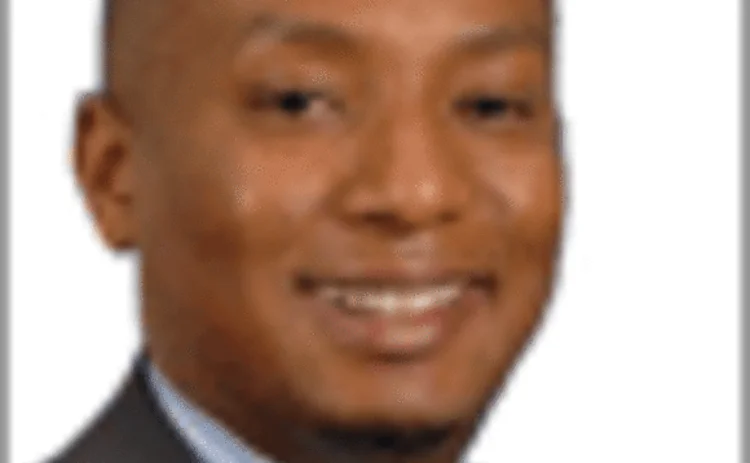
Islamic Derivatives House of the Year - Deutsche Bank

Islamic finance has always been open to interpretation: what ticks the boxes of one Islamic scholar may not meet the approval of another. A new product can take months of structuring and fine-tuning before it meets with the approval of one sharia board, only to find the sharia board of another bank in a different country rejects it out of hand.
Banks have typically structured tailored financial products from scratch, using concepts accepted in Islamic finance - for instance, murabaha (a contract that fixes the price of an underlying, including a pre-agreed profit margin) and arboun (the right to purchase an asset at an agreed price in the future). This has tended to limit the structures and underlying assets investors can access, as well as adding to the structuring and legal costs of transactions. However, Deutsche Bank has developed a technique that allows Islamic investors to access a wide universe of assets using an Islamic total return swap.
The procedure first came into popular view in June 2007, when the bank launched a five-year note referenced to the DB-GSAM Alps index, which tracks the performance of a fund of funds managed by Goldman Sachs Asset Management. However, the bank has continued to use the technique, issuing a variety of products on both the asset and liability sides last year.
The total return swap uses the concept of wa'ad, whereby the client invests in sharia-compliant assets, and these are swapped for the returns of another asset - whether it be an index, a hedge fund or a credit-linked note. Crucially, while the assets the client invests in directly are sharia compliant, the assets referenced by the total return swap are not - meaning Islamic investors can, in theory, invest in anything.
"Our first-mover advantage in this area has allowed us to enable a greater number of Islamic investors to access top hedge fund managers. Our products have been approved by a number of leading Islamic scholars. The rationale is that as long as money is managed in a sharia-compliant way and invested in sharia-compliant assets, investors are comfortable," says Hussein Hassan, head of Islamic structuring at Deutsche Bank in Dubai.
Following its first public hedge fund product in 2007, Deutsche has expanded its offering, launching DB Islamic Liquid Select last year. This provides exposure to several strategies via Deutsche's proprietary hedge fund indexes: equity long/short; event driven, distressed and arbitrage strategies; and quantitative macro.
The idea has been controversial, with scholars in certain jurisdictions questioning its Islamic credentials. Nonetheless, the bank wins praise from investors for opening up asset classes that had previously been closed to them.
Aside from structured investment products, the bank has provided sharia-compliant liability structures. For instance, it developed a financing structure for a large Saudi Arabian company, which it claims was the first-ever sharia financing linked to a proprietary rates trading index.
The company needed to raise around 1 billion Saudi Arabian riyal ($267 million) in sharia-compliant financing at as low a profit rate as possible. Having approached Deutsche Bank in May last year, a seven-year 1 billion riyal murabaha facility was arranged, extended by a major Saudi bank, where the profit payments were fixed to the seven-year Saudi Arabian riyal swap rate.
The transaction included a back-to-back profit rate hedge provided by a Qatari bank, with Deutsche Bank acting as market risk counterparty, where the client's net payments were linked to a proprietary index developed by Deutsche. Called the DB Trends USD Index, it is designed to track an investment strategy that systematically selects long or short positions in eurodollar interest rate futures to capture returns generated by trends in short-term interest rates. By structuring the financing this way, the corporate achieved significant savings on its cost of funding.
The hedge was achieved through two simultaneous Islamic profit rate swaps, with Deutsche providing the sharia-compliant technology. "This is, to our knowledge, the first time a sharia-compliant financing facility and hedge have been packaged into one deal for a client," says Hassan.
Meanwhile, the bank launched its Al Mi'yar platform in December, intended to facilitate the issuance of sharia-compliant securities, even if they are referenced to non-sharia underlyings.
The platform allows Deutsche to launch sharia-compliant versions of all the products it offers through its X-markets platform, which covers certificates, structured notes, funds and warrants. The Al Mi'yar platform can also be used to issue sharia-compliant cash securities, such as sukuk, commercial paper and money market instruments.
"The platform meets all the latest standards issued by Accounting and Auditing Organisation for Islamic Financial Institutions and hence should be globally acceptable. Al Mi'yar will enable Islamic investors to meet their specific investment objectives by giving them exposure to different asset classes without compromising their Islamic beliefs," explains Geert Bossuyt, Deutsche Bank's Dubai-based head of Middle East structuring.
See also
Only users who have a paid subscription or are part of a corporate subscription are able to print or copy content.
To access these options, along with all other subscription benefits, please contact info@risk.net or view our subscription options here: http://subscriptions.risk.net/subscribe
You are currently unable to print this content. Please contact info@risk.net to find out more.
You are currently unable to copy this content. Please contact info@risk.net to find out more.
Copyright Infopro Digital Limited. All rights reserved.
You may share this content using our article tools. Printing this content is for the sole use of the Authorised User (named subscriber), as outlined in our terms and conditions - https://www.infopro-insight.com/terms-conditions/insight-subscriptions/
If you would like to purchase additional rights please email info@risk.net
Copyright Infopro Digital Limited. All rights reserved.
You may share this content using our article tools. Copying this content is for the sole use of the Authorised User (named subscriber), as outlined in our terms and conditions - https://www.infopro-insight.com/terms-conditions/insight-subscriptions/
If you would like to purchase additional rights please email info@risk.net
More on Awards
Joining the dots: banks leverage tech advancements for the future of regulatory reporting
The continued evolution of regulatory frameworks is creating mounting challenges for capital markets firms in achieving comprehensive and cost-effectiveawa compliance reporting. Regnology discusses how firms are starting to use a synthesis of emerging…
Markets Technology Awards 2024 winners' review
Vendors spy opportunity in demystifying and democratising – opening up markets and methods to new users
Derivatives house of the year: JP Morgan
Risk Awards 2024: Response to regional banking crisis went far beyond First Republic
Risk Awards 2024: The winners
JP Morgan wins derivatives house, lifetime award for El Karoui, Barclays wins rates
Best product for capital markets: Murex
Asia Risk Awards 2023
Technology vendor of the year: Murex
Asia Risk Awards 2023
Best structured products support system: Murex
Asia Risk Awards 2023
Energy Risk Asia Awards 2023: the winners
Winning firms demonstrate resiliency and robust risk management amid testing times







